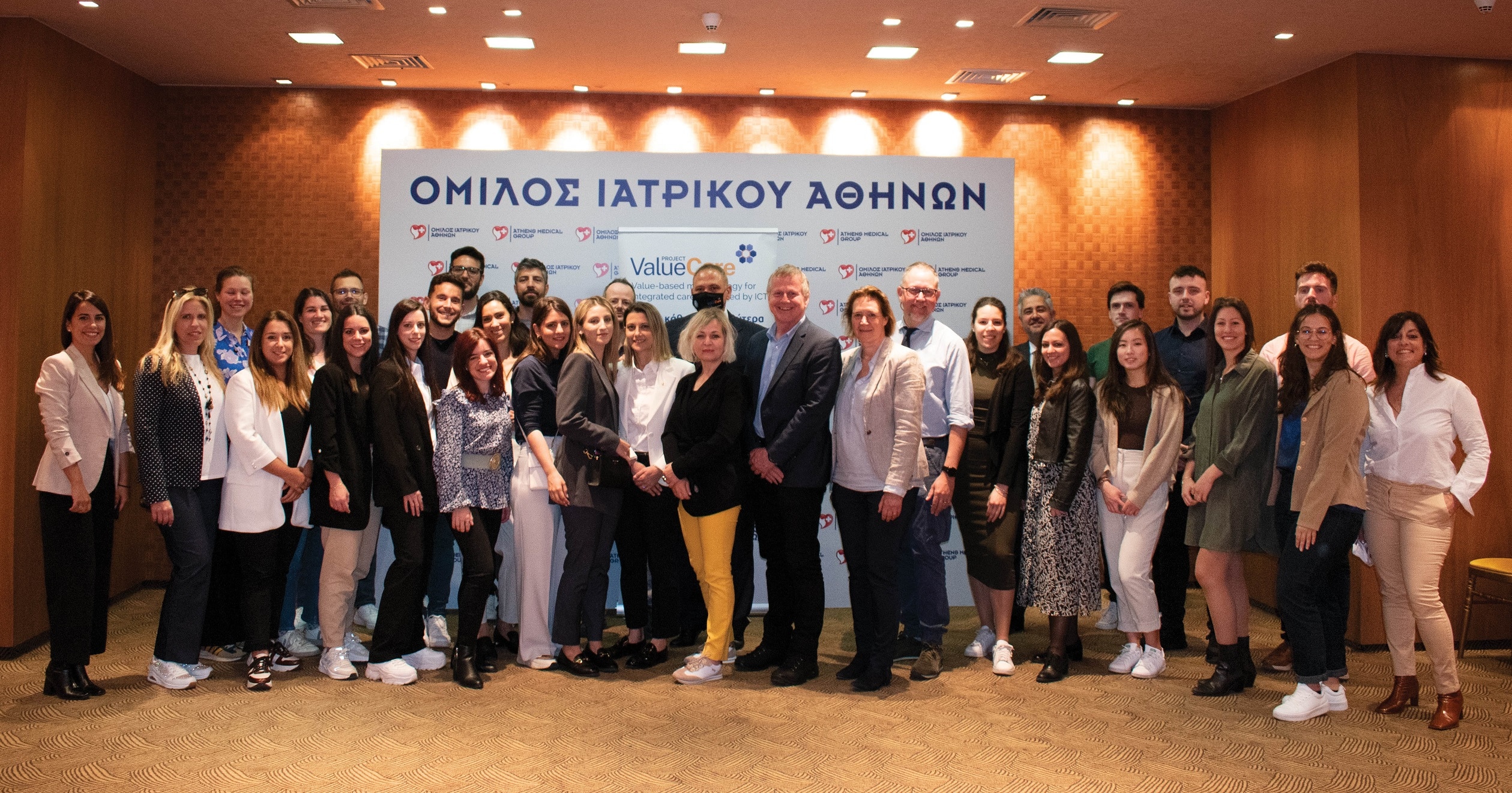
On 20 and 21 April we met with the partners of the EU-funded project ValueCare in Athens, Greece, to explore a new vision of care focused on outcome and the real value offered to older people.

Many citizens in European countries are facing complex health conditions, multi-morbidity, physical and cognitive impairments in older age. Health Services, healthcare professionals and caregivers often work under pressure and in an uncoordinated manner focused on the service delivery and not on the patient. This makes people in need of care struggle to understand the care ecosystem.
To guarantee that older persons receive high-quality long-term care, we need to rethink care and change the current care delivery, payment, and strategy for public and private healthcare systems.
What is Value-based care model about?
Value-based care (VBC) is a healthcare delivery model that focuses on improving patient outcomes while simultaneously reducing healthcare costs, by proposing:
- A person-centered care approach: older people and their families should be actively involved in their care plan design and the decision-making process should be shared.
- To measure patient outcomes during the full cycle of care: this approach offers standard sets of outcome measures that really matter to patients for the most relevant medical conditions. Measuring outcomes is key to making informed decisions about resource allocation and care pathways. This requires a combined effort by all providers in the full cycle of care (including prevention, diagnosis, intervention, recovery and monitoring) to collect data and use the data to identify areas for improvement, measure performance, and track progress towards achieving the goals of value-based care.
- Collaboration environment and creation of learning communities: providers across different specialties and healthcare settings should collaborate to ensure that patients receive integrated and coordinated care, reducing the duplication of services and improving care quality.
- Incentives for high-quality care: financial incentives should be aligned with the goals of value-based care to encourage providers to prioritize patient outcomes over the volume of services provided. Payment models should be designed to reward providers and healthcare professionals for delivering high-quality care that improves patient outcomes while controlling costs. Providers should regularly evaluate their performance, identify areas for improvement, and implement continuous changes to enhance the quality of care.
Customized care
The Valuecare project intends to adapt the value-based healthcare system to different care settings. The objective is to deliver personalized integrated (health and social) care services and reach the best citizen’s health outcomes possible by improving their overall level of health and wellbeing. Additionally, we are supported by a robust, secure and scalable digital solution that is currently being tested and evaluated in 7 large-scale pilots in Europe together with the end-users.
To sum up, the concept of Value-based Care aims to bring greater efficiency in the use of resources and coordination of care in a setting that ensures trust of users and policy makers about data access, protection and sharing and standardization that can be replicated in the EU.
What’s next?
The project consortium is now working on future exploitation of the results. AGE will contribute to the policy recommendation document that gathers the lessons learned and results of the project and encourages policy makers to advocate for such care models.
The project partners will meet again later this autumn in Dublin (Ireland).
For more information on this project and AGE involvement, you can contact Marine Luc: marine.luc@age-platform.eu and Sofia Santos Nunes: sofia.nunes@age-platform.eu






